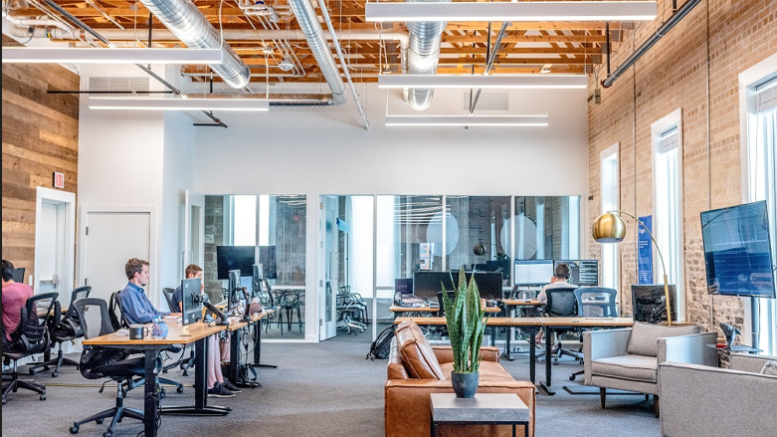How finding talent in the aviation industry became a massive problem
The global pandemic shook the aviation industry from the ground up. According to Oxford Economics July 2022 study, 2.3 million jobs have been lost across airlines, airports, and civil aerospace groups since the outbreak of Covid-19 — a 21 % reduction compared with pre-pandemic levels. With the industry slowly regaining its strength, thousands of job openings are threatening the industry with a new challenge – a lack of available talent.
“The last couple of years were difficult for the whole aviation industry,” said Martin Horan, an expert in Learning & Development and an instructor at Aeroclass, a subscription-based digital learning platform focused specifically on aviation. “After working in the industry for years, people found themselves jobless and thus turned to other fields for employment, as aviation often equips people with many easily transferable skills. Now, when jobs are available once again, many of those, who shifted their careers during the pandemic, are not coming back. Sometimes people get comfortable at their jobs and only when forced into a challenge find new opportunities that sometimes are even more exciting.”
According to Martin, while the aviation industry is experiencing various recruitment challenges, they differ from market to market. “While in well-developed aviation markets the main headache for recruiters is lack of enthusiastic talent, in less developed markets, like Africa, well-trained individuals are finding it difficult to grow their career, do not have enough opportunities to thrive in aviation.”
With the industry struggling to attract new talent, it is crucial to retain professionals that are already working in the aviation industry. “Providing adequate opportunities for employees to continue learning can help retain talent. Learning is a habit that allows professionals to stay relevant and current and gain and improve valuable skills. It is incredibly important to offer learning opportunities for those who want to learn and develop themselves. By doing so companies can not only retain their current staff but reskill them as needed,” Martin explained.
While constantly investing in people’s skills and abilities is an important part of retaining and attracting talent, investing in relationships should not be underestimated. “Organisations should build relationships with their people, care about them, continue training, multiskilling people, be agile and not stuck in old ways,” Aeroclass lecturer thinks. “I also believe that recruitment and retention should not be only an HR problem but should involve the highest management as well. Having stronger interest from organisation leadership could have a large impact on overall processes within the company.”
Even though aviation was always seen as an attractive and exciting industry, there is much to learn from other fields. “There are plenty of companies and sectors that are managing recruitment better. For example, technology companies. Cross-industry know-how exchange could be beneficial in attracting current and future talent into aviation,” shared Martin Horan.
“The last couple of years were difficult for the whole aviation industry,” said Martin Horan, an expert in Learning & Development and an instructor at Aeroclass, a subscription-based digital learning platform focused specifically on aviation. “After working in the industry for years, people found themselves jobless and thus turned to other fields for employment, as aviation often equips people with many easily transferable skills. Now, when jobs are available once again, many of those, who shifted their careers during the pandemic, are not coming back. Sometimes people get comfortable at their jobs and only when forced into a challenge find new opportunities that sometimes are even more exciting.”
According to Martin, while the aviation industry is experiencing various recruitment challenges, they differ from market to market. “While in well-developed aviation markets the main headache for recruiters is lack of enthusiastic talent, in less developed markets, like Africa, well-trained individuals are finding it difficult to grow their career, do not have enough opportunities to thrive in aviation.”
With the industry struggling to attract new talent, it is crucial to retain professionals that are already working in the aviation industry. “Providing adequate opportunities for employees to continue learning can help retain talent. Learning is a habit that allows professionals to stay relevant and current and gain and improve valuable skills. It is incredibly important to offer learning opportunities for those who want to learn and develop themselves. By doing so companies can not only retain their current staff but reskill them as needed,” Martin explained.
While constantly investing in people’s skills and abilities is an important part of retaining and attracting talent, investing in relationships should not be underestimated. “Organisations should build relationships with their people, care about them, continue training, multiskilling people, be agile and not stuck in old ways,” Aeroclass lecturer thinks. “I also believe that recruitment and retention should not be only an HR problem but should involve the highest management as well. Having stronger interest from organisation leadership could have a large impact on overall processes within the company.”
Even though aviation was always seen as an attractive and exciting industry, there is much to learn from other fields. “There are plenty of companies and sectors that are managing recruitment better. For example, technology companies. Cross-industry know-how exchange could be beneficial in attracting current and future talent into aviation,” shared Martin Horan.
Source: Avia Solution Group














Be the first to comment on "How finding talent"